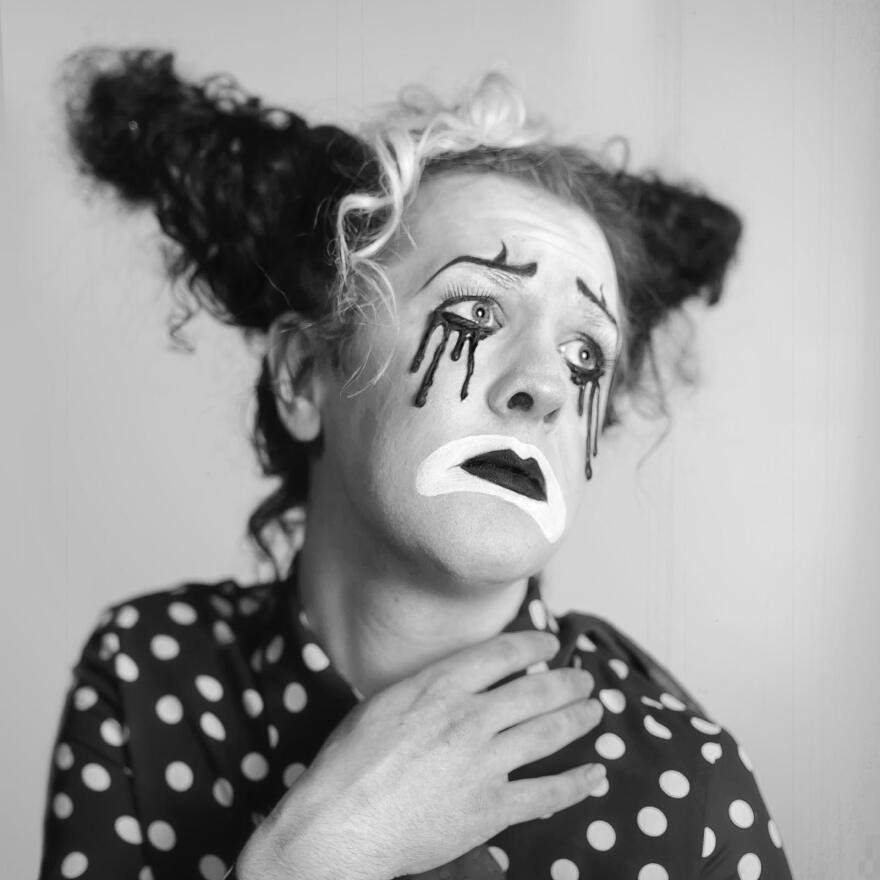The next time you're at the club, dancing to thumping, bass-heavy tracks, know that what you're hearing has roots in black and LGBTQ communities.
These days electronic music is most strongly associated with straight, cisgender artists such as The Chainsmokers and Skrillex. But decades ago, some of the form's forefathers got their start at discos, which became places where gay, black, queer and trans people could gather and socialize and dance, says Kansas City musician Zoey Shopmaker. Emerging from that scene were black DJs such as Larry Levan and Frankie Knuckles, known as the “Godfather of House Music.”
“To me it represents the ways that straight, cis, white men have taken electronic music from queer people because queer people are the ones who started electronic music,” Shopmaker said. “Specifically black queer people.”
Shopmaker, along with her two friends Mazzy Mann and Lorelei Kretsinger, are three Kansas City trans women trying to set the record straight in terms of their community's artistic contributions.
Since they founded the collective UN/TUCK last year to provide a space and voice to queer and trans artists in Kansas City, they've been awarded a Rocket Grant through the Charlotte Street Foundation and the Spencer Museum of Art.
They’re using the money to fund a three-day music festival called "Transfiguration" next April, with live performances, a drag and fashion show, an art installation, workshops and a pop-up shop selling queer and trans-minded clothing. Their intent is to celebrate trans icons and identities from different eras.
“UN/TUCK was kind of founded out of a recognition that there's a stark lack of representation for women — queer women and trans women — in the music industry,” Shopmaker said. “Specifically in our city we didn't feel like there was very much at all.”
UN/TUCK officially launched last October with a party at dance club Niche KC. The venue has hosted most of the collective’s events. In January, it was home to a tribute to Wendy Carlos, a trans composer who scored films including “The Shining” and “Tron.” In May, it was the site of the release party for Mann’s album, the first full-length project produced by the group.
Called “Pagliacci,” the album is an exploration of the trans femme experience. Recorded under Mann’s stage name MXMRS and told in two acts, it's inspired by classic noir horror films and the experimental music Mann listened to as a kid growing up in Independence, Missouri.
The first time she heard a song by techno band Xiu Xiu, she said, it changed her world.
“At first I thought it was actually terrible and horrific,” she said. “But that was the great thing about it is I couldn't get it out of my head.”
Mann describes “Pagliacci” as “anti-pop,” a deliberate attempt to break from the structure of traditional pop music. In the track “Mx. (You Erase Me),” she addresses how people's refusal to use gender-neutral pronouns, such as Mx. instead of Mr. or Ms., erases trans identities.

“I fit outside the binary, but you don't even have the language for it," she says. "Here I am trying to give you the language, and yet you still tell me I don't exist.”
The title “Pagliacci” comes from Alan Moore’s classic graphic novel “Watchmen,” in which a character tells a joke about a doctor recommending that a patient see a performance by the clown Pagliacci to cheer himself up.
But doctor, the man says. I am Pagliacci.
“There’s this interesting juxtaposition between the art of being a clown and the existential tragedy of being a clown, which I feel like is so much the queer experience,” Mann said.
The members of UN/TUCK are almost completely self-taught. Much of their music is made in bedrooms on laptops, using technology that is opening up the genre to more people.
“The accessibility of electronic music is really appealing to any marginalized community,” Kretsinger said.
With the help of the collective, Shopmaker wants to tour the world as a DJ. Kretsinger wants to score and design video games. Mann wants to make the kind of music that helped her through her teenage years.
Shopmaker said the exposure they’ve experienced in Kansas City so far is unprecedented.
“We definitely started doing it because there was no one else doing it, not because we wanted to be pioneers,” Shopmaker said. “We're just three trans women that wanted to play some music.”
Editor's note: This story has been updated to clarify the role of disco in the emergence of electronic music, and to add details about the "Transfiguration" event scheduled for April.
Courtney Bierman is a KCUR intern. Follow her on Twitter @courtbierman.



